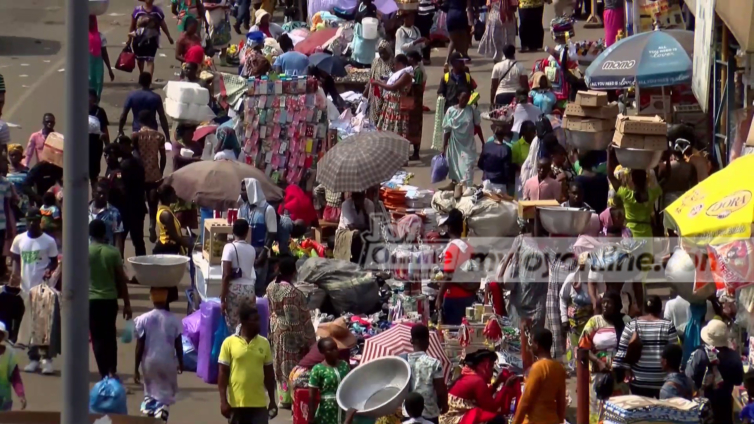Despite universal agreement on the responsibility to protect populations from atrocities, the concept is now “evolving into a rather complex and unpredictable situation”, a former UN Under Secretary-General and Special Adviser on the Prevention of Genocide, Adama Dieng, has said.
This, he argued, was as a result of changing “conflict dynamics and dimensions”.
“Today, states are no longer an exclusive source of authority and political power,” said Mr Dieng, who is currently President of the Pan African Alliance for Transparency and the Rule of Law.
“Armed groups are increasingly capable of unleashing brutal violence on a scale before unimaginable.
“Today we are seeing conflicts in remotest parts of the world being influenced and supplied with weapons from far away actors.
“Reality is, the UN must evolve and adapt to these new developments.”
He emphasised:“The United Nations must send an unmistakable message to all parties involved in conflicts that violence of any kind as a tool to resolve differences is unacceptable.
“Those who instigate, support or indeed bankroll violence will be punished.”
Mr Dieng, who is also a Special Adviser to the Prosecutor of the International Criminal Court, was addressing students and faculty this week at Oxford Martin School, University of Oxford.
Focusing on the challenges and opportunities facing the prevention of genocide in the 21st century, Mr Dieng said: “It is regrettable that state representatives often interpret meetings with especially the Special Adviser on the Prevention of Genocide as suggesting that genocide is present or imminent in their countries, which results in defensive behaviour.
“This scepticism is also reflected in what is perhaps the most significant challenge facing the work of both the Special Adviser on the Prevention of Genocide and the Special Adviser on the Responsibility to Protect.
“I am referring here to the resistance from within the UN system.
“Those parts of the UN system whose mandate relates to mediation and peace-making, for example, do not appreciate the possible negative impact that mention of atrocity crimes may have on the peace process,” Mr Dieng added.
Touching on the “tragedies unfolding before our very eyes”, Mr Dieng said: “The obvious question that stands out is how prepared are we to respond to events such as those in Sudan? “Clearly, Sudan, represents a litmus test for the international community; but most importantly for the Security Council and indeed the African Union.”
He said since the beginning of the fighting in Sudan, the Security Council “has failed to speak with one unequivocal voice against the actions of both parties to the conflict, but more crucial, to take decisive steps to protect civilians who continue to face the brutal nature of this senseless conflict”.
“The Council must provide moral and political leadership to stop ongoing violence in the country.
“This is because within the ambit of the current Charter, it is only the Security Council which wields ultimate power and indeed political duty and moral responsibility to address challenges with international peace and security dimension,” Mr Dieng added.
“As such, the message coming from the Council, more than anything else, will continue to determine the extent to which we can save and protect lives of vulnerable populations at risk of genocide.”
Mr Dieng said he believed there was “adequate international legal framework to address events such as those unfolding in Sudan, and elsewhere”.
“What is urgently required, but which is critically lacking, is the political courage and leadership of the Security Council to overcome divisions in its ranks to fulfil is role and perform its duty as enshrined in the Charter,” Mr Dieng added.
Latest Stories
-
KPMG’s report on GRA and SML deal, government white paper on report and matters arising
39 seconds -
I won’t reply to Chris Brown tour criticism – Ayra Star
3 mins -
British Columbia to back off drug decriminalisation project
11 mins -
Veteran commentator Joe Lartey Sr dies at 96
12 mins -
Livestream: Newsfile discusses KPMG report on SML deal, ILO on SSNIT reserves and NDC’s running mate
45 mins -
Ghanaian activist hugs over 1,100 trees in an hour to set Guinness World Records
46 mins -
Mathew Anim Cudjoe’s Dundee United promoted to Scottish Premiership after Championship win
48 mins -
NSMQ star Jochebed Adwoa Sutherland sweeps 12 awards at UG Vice-Chancellor’s Ceremony
2 hours -
Ghana’s Education Quality ranked 125 out of 183 countries in latest Global Youth Development Index
2 hours -
Emma Stone wants people to use her real first name
2 hours -
FIFA Club World Cup 2025: Sundowns, Esperance join Al Ahly and Wydad as CAF representatives
6 hours -
CAFCL: Al Ahly set up historic final with ES Tunis
6 hours -
We didn’t sneak out 10 BVDs; they were auctioned as obsolete equipment – EC
10 hours -
King Charles to resume public duties after progress in cancer treatment
11 hours -
Arda Guler scores on first start in La Liga as Madrid beat Real Sociedad
11 hours

